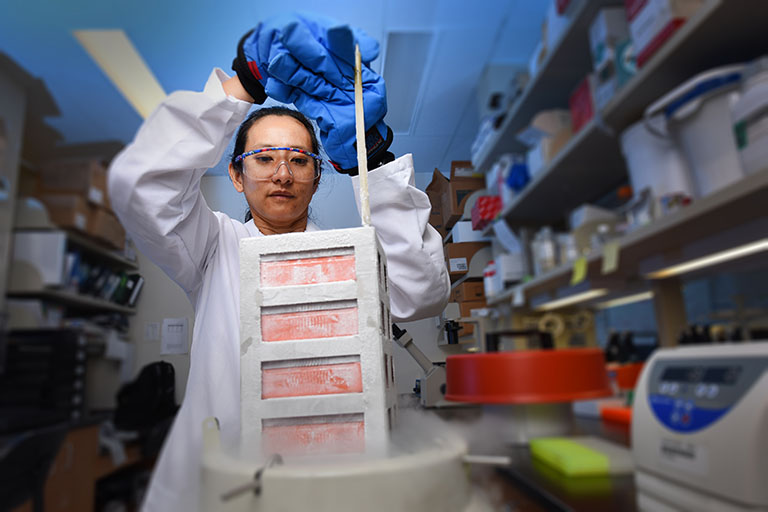Lab research, clinical trials, patient care, and more
Miles for Myeloma supports patients in many ways: funding laboratory research, supporting clinical trial research, enhancing patient care, and advocating for the overall well-being of patients and families.
At our annual dinner and education symposium that follows the event, myeloma experts from IU and across the country speak to our patient families to help them better understand their disease, treatment options, and what researchers are doing to improve outcomes.







